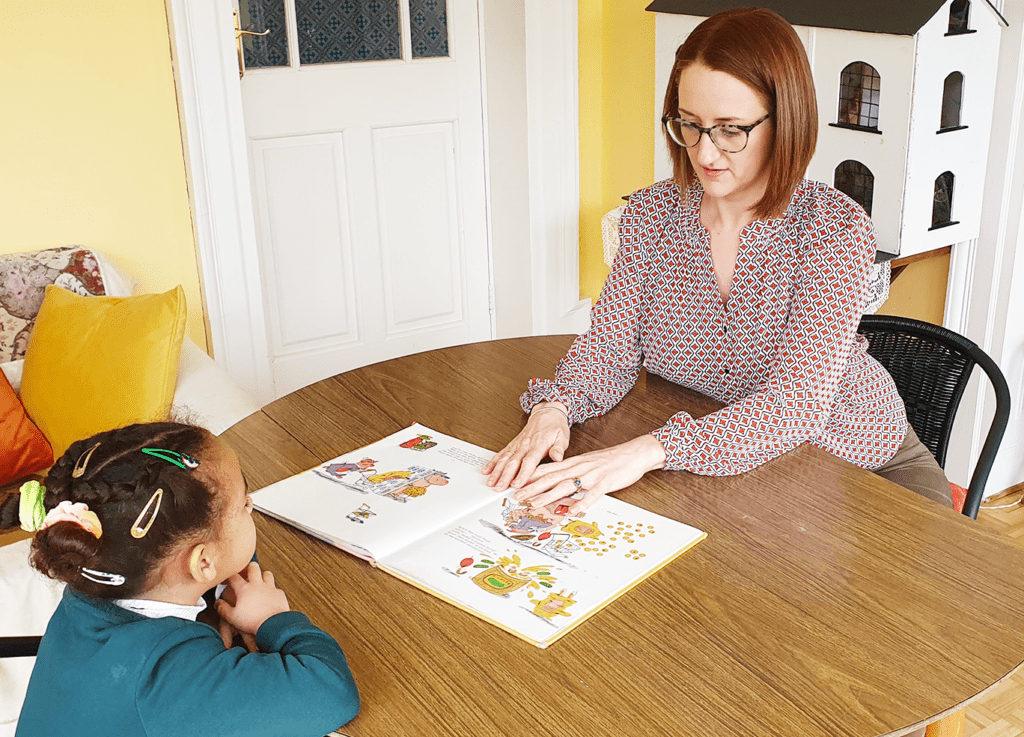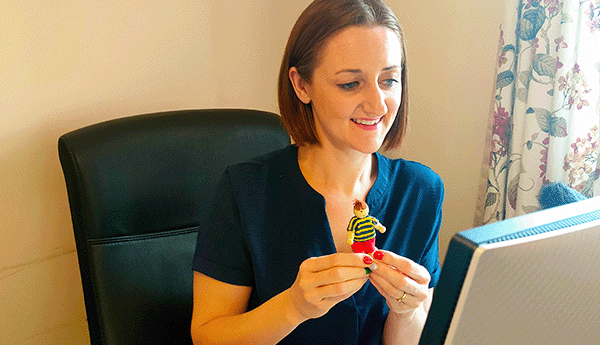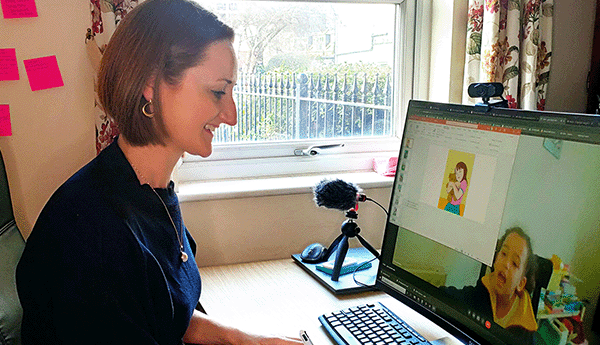
services
Speech and Language Therapy Services
Speech and language therapy sessions with Shall We Say consists of regular sessions between the speech and language therapist and the child. Outcomes can be more effectively targeted if an adult, who can spend time between the sessions practicing activities with the child, also attends the session. The duration of sessions and number of sessions depends on the child’s needs. Outcomes are targeted using games, quizzes, reflective activities and worksheets.
- Speech (the sounds made to form words)
- Language (vocabulary, sentence structure, grammar, narrative structure)
- Social communication (conversation skills, friendship skills, expressing emotions appropriately)
- Voice (improving vocal quality and health of the voice)


Assessment
An important first step to identify a child’s strengths and needs and to set appropriate personalised targets. Assessment may take place online or in person.
Assessment is an important first step to identify a child’s strengths and needs and to set appropriate personalised targets. Depending on the child, assessment may be:
- Standardised: A structured, prescriptive assessment using a published resource. Results are scored and can be compared to other typically developing children providing average range scores, standard scores and percentile ranks.
- Dynamic: A ‘fluid, responsive’ assessment style (ASHA) using a range of informal materials, where results are reported descriptively. Dynamic assessment is preferred where the pupil profile does not match that of the standardised population of a standardised assessment, for example among the bilingual population.
Assessment can take from between one to three hours, and can consist of quizzes, conversation, talking about pictures with the SaLT, SaLT observation of the child, and interviews with parents and teachers.
Teletherapy


Speech and language therapy sessions and assessments delivered online using videocall platforms, in accordance with the evidence base. Teletherapy refers to therapy sessions delivered using online videocall platforms such as Zoom, Skype or Google Meet. It is supported by speech and language associations around the world for both therapy and assessment where appropriate, including the American Speech Language Hearing Association (ASHA), the Royal College of Speech and Language Therapists (RCSLT) in the UK, and Speech Pathology Australia.
“telepractice is an appropriate model of service delivery for audiologists and speech-language pathologists (SLPs)” (ASHA 2005).
Teletherapy (under the umbrella of ‘telehealth’) is supported by the Royal College of Speech and Language Therapists (RCSLT) for both therapy and assessment where appropriate. “There is an emerging evidence base around the administration of speech and language therapy assessments via telehealth, which indicates that telehealth assessment works and is
acceptable (Edwards et al 2012; Waite et al 2010, 2006)” (RCSLT).
“Speech Pathology Australia supports the use of telepractice as a service delivery model where telepractice is based on current evidence-based practice and is at least equivalent to standard clinical care” (Speech Pathology Australia).
Working with Schools

In person or online workshops and consultations with teaching staff “Remember, generally speaking… ‘if children don’t say it, they don’t write it’.
In terms of literacy, it is universally acknowledged “that successful development of literacy depends upon competent language skills” (Palmer, 2004 cited in I CAN Talk 1, 2006) and that “language and phonological skills are the foundations of literacy development” (Snowling & Hulme, 2012)”. The Communication Trust.
Shall We Say works with schools to provide training to teaching staff, both in person and online. Workshops can be planned with the particular needs of the school in mind but may include the following:
- Identifying speech and language difficulties in the classroom
- Strategies to support speech and language difficulties in the classroom
- Typical and atypical phonological development
- Evidence based approaches to teaching vocabulary
- Autistic Spectrum Disorder (ASD)
